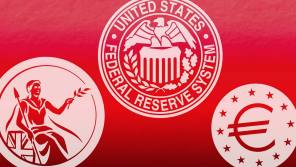
Macron's election victory credited with buoying investors







The outcome of the French presidential election in May this year was a turning point for investor sentiment towards Europe, according to Liontrust’s Olly Russ.
In his latest blog, Mr Russ, a European income fund manager at Liontrust, said: “The Italian referendum marked the start of what was seen as a potentially tumultuous 12 months in Europe.
“The prospect of political turmoil was understandably causing significant investor nervousness, although in our view the most feared outcomes never stood much of a chance of materialising in reality.
“This nervousness was most probably leading investors to apply a risk discount to their assessment of European shares’ fair value.”
He pointed out the discount had unwound in 2017, with the MSCI Europe ex-UK index having returned 16.3 per cent in sterling terms so far (12.9 per cent in local terms).
“Investor sentiment has improved noticeably though since the electoral victory of French President Macron in May,” he observed.
Tristan Hanson, manager of the M&G Global Target Return fund, agreed Emmanuel Macron’s win in the French election over far right candidate Marine Le Pen had restored investor confidence in the region.
“Sentiment towards European equities has improved dramatically in recent months, driven by stronger economic growth and, following [Mr] Macron’s French election victory, a belief that major political risks have diminished,” he said.
“The risk of a systemic crisis in Europe has diminished substantially in the eyes of investors, which explains the very muted overall market reaction to recent developments in Catalonia.”
The increased interest in Europe from UK investors has translated into fund sales.
According to Mr Russ, Investment Association data for September showed a net £489m being injected into Europe ex-UK funds – the third most popular sector out of 37 – up from -£183m in the same month a year previously.
But he added: “Despite this recent popularity, over the last 20 months there still have been essentially no net flows into European equity exchange-traded funds (ETFs) according to UBS, a period during which US equity ETFs have seen a US$322bn inflow.”
But Jonothan McColgan, director and chartered financial planner at Combined Financial Strategies, said the current European sentiment was being driven more by valuations.
He asked: "If you can get similar earnings forecasts from European companies but on a lower share price (so cost) then why wouldn’t you buy the European company in question?
"Europe looks increasingly attractive simply because share prices have grown less than those in the UK and US in recent years, making valuations in the US and UK look more stretched."
Mr Russ acknowledged: “If anywhere has taken on the mantle of European political instability at the moment, we would probably have to point to the UK.”



